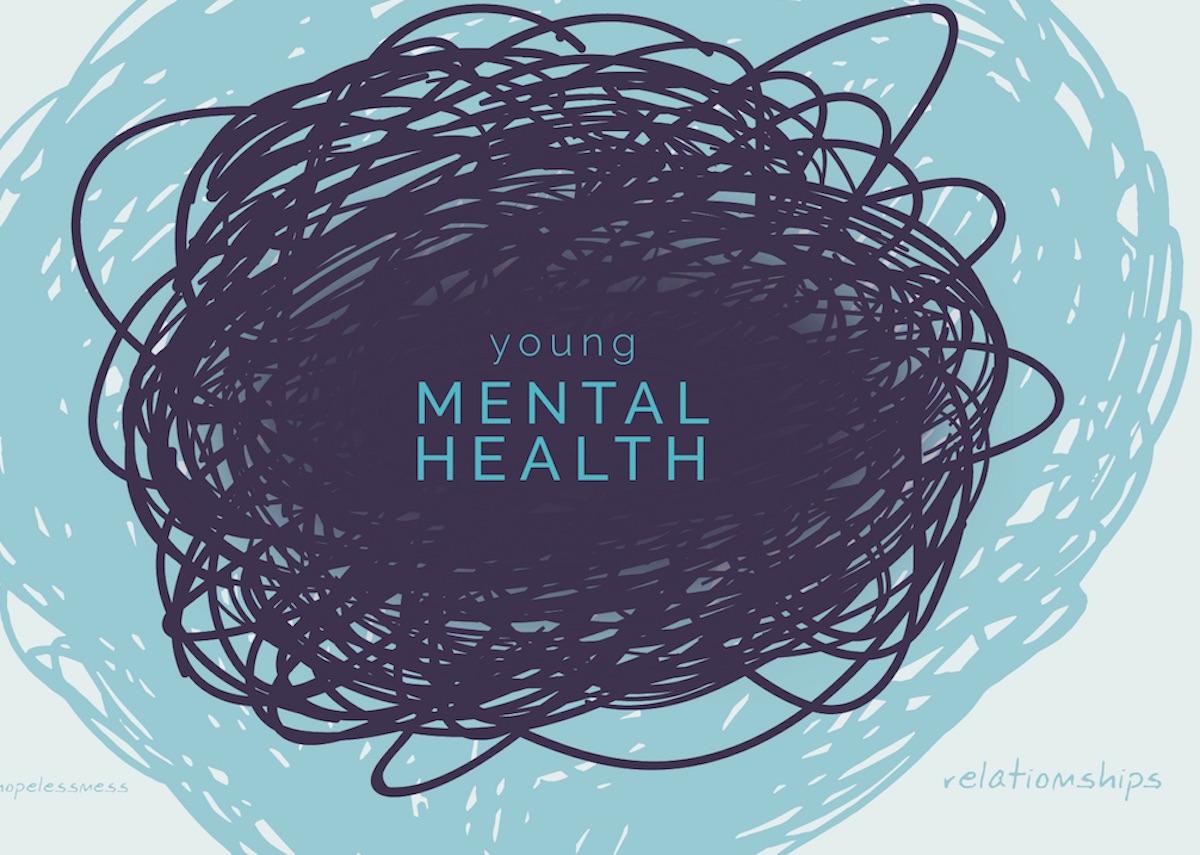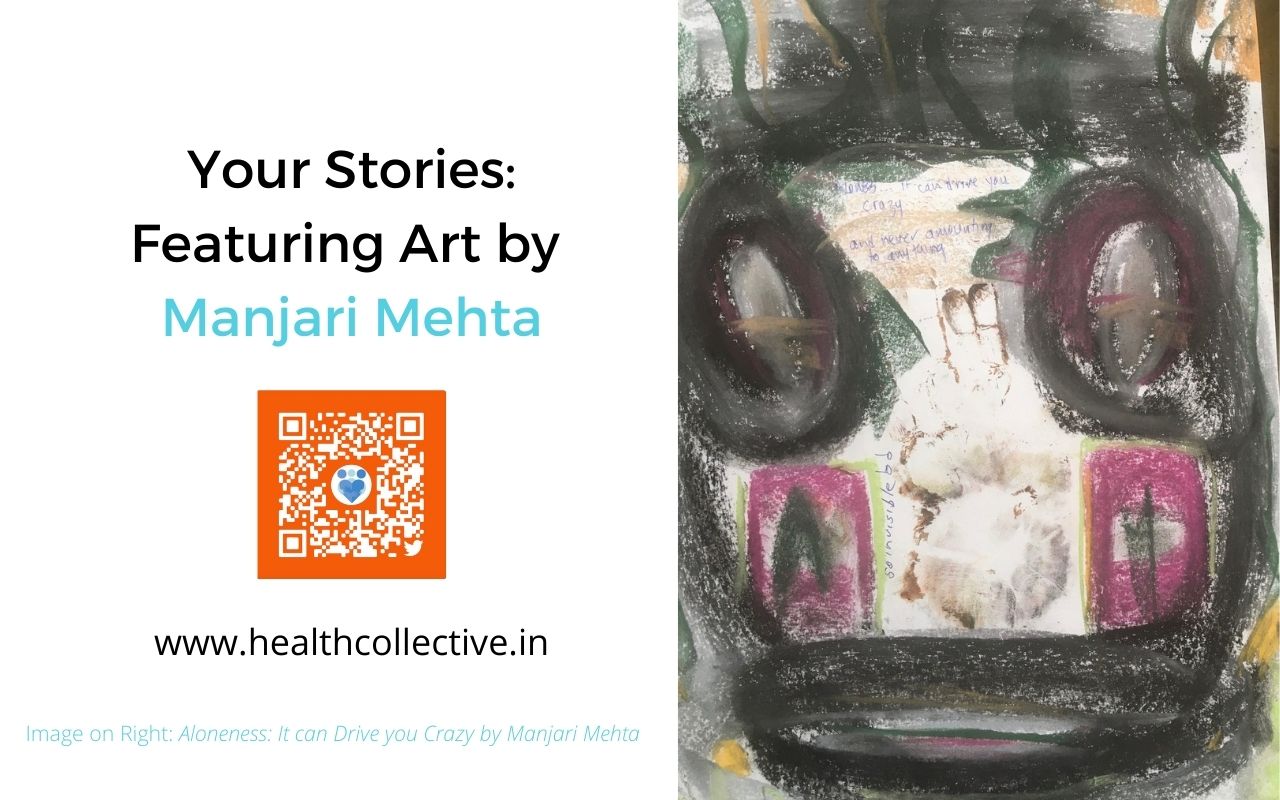The Law and You: Trans Persons, Mental Healthcare and the Law
“People call us hijra, chakka and all sorts of things, no one asks us our individual names or what we want to be called. Terminology doesn’t matter when there is no respect,” Surekha*, a transgender woman from a low income community, who self-identifies as belonging to the hijra community tells The Health Collective. These same people use the terms they call us as, as an insult for other people. I can proudly say I am from the hijra community today but others only look at it with disgust and shame.”
(Translated from Hindi; Log toh humein hijra, chakka or bahut kuch bulate hain. Koi nahi puchta ki naam kya hain ya phir hum kis nam se jaane jaana chahte hain. Yeh sab nam toh dur ki baat hain, jab koi adar hi nahi hain, log humein insaan jaise hi nahi dekhte, toh phir naam se kya pharak padhta hain. Jo naam humein dete hain, unhi namon ko aapas main gaali jaise isltimal karte hain. Main aaj garv bol sakti hoon ki haan main hijra hoon kyunki inhi logo ka saath raha hain, aur sab niradar aur gandagi se dekhte hain.)
Transgender persons face continued systemic oppression and violence in India. Constant social exclusion has led to their aggravated disadvantaged economic status, in turn lowering access to basic civic rights of housing, sanitation, education and healthcare. Even the National Legal Services Authority v. Union of India (NALSA) judgement, considered a landmark ruling towards establishing the rights of trans persons and providing social welfare schemes targeted at their specific needs, leaves an important aspect of healthcare directly undiagnosed – that of mental health.
The few research studies undertaken on this subject drive home the urgent need for more sustained mental healthcare solutions for trans persons along with dismantling of social barriers and continued discrimination.
Photo Hijras of Panchsheel Park II, New Delhi, 1994, by R Barraez D’Lucca, shared under Creative Commons Licence 2.0
TRANS PERSONS AND MEDICAL MENTAL HEALTHCARE STANDARDS
Whenever one speaks of the mental health of trans persons, somehow the dominant discourse always seems to be on seeing their gender identity as a mental health issue in itself, rather than focusing on other aspects of mental health concerns that can oft be aggravated in trans persons due to societal systems and structural oppression.
Trans persons have constantly been diagnosed as having a “mental illness” and this continues to happen even today. Varied forms of therapy continue to be used by quacks for supposed “treatment”. It was only in 2017 that Denmark became the first country to remove the classification of “transsexuality/transgender” as a mental illness.
An earlier change took place in 2013, when “gender identity disorder” was dropped from the Diagnostic and Statistical Manual of Mental Disorders, Fifth Edition (DSM-5), published by the American Psychiatric Association. A condition called “gender dysphoria” was added to diagnose and treat trans persons. The new diagnosis recognises that a mismatch between one’s birth gender and one’s chosen gender identity is not pathological. It shifts the emphasis in treatment from fixing a disorder to resolving distress over the mismatch.
What does this mean on the ground? Trans persons in the USA are no longer classified as being mentally ill owing to their gender identity. In fact, transitioning biologically, through surgery, is considered as one of the final treatments of gender dysphoria by the American Psychiatric Association. Alongside, there is an increasing call for biological transition to not be seen as the necessary end goal of choosing a different gender identity for oneself than the one assigned at birth within the community.
ALSO READ: THE LAW AND YOU: MENTAL HEALTHCARE IN EDUCATIONAL INSTITUTIONS
Few research studies, especially in India, focus on the mental healthcare needs of trans persons. The National Alliance on Mental Illness, an American Non Profit Organisation has stated that trans persons are at a higher risk of mental illnesses.
In India, a recent study reported that about 54% the trans persons responding to the study questions had the habit of consuming alcohol and 26% of them had severe depression. It also stated that 31% of trans persons in India end their life by committing suicide, and 50% have attempted suicide at least once before the age of 20.
MENTAL DISORDERS AND ILLNESS
According to a study done in Mumbai and referenced here, 48% of hijra participants suffered from psychiatric disorders, ranging from alcohol abuse and dependence to depressive spectrum disorders. None had ever had psychiatric consultations for these issues.
Often the fear of ‘coming out’ and being discriminated against for one’s sexual orientation and gender identity can lead to: depression, posttraumatic stress disorder (PTSD), thoughts of suicide, and substance abuse.
According to the “minority stress” theory, disparities in health are due to stressors from a more dominant culture, ie “For transgender people living in a majority heterosexual culture, minority stress takes the form of discrimination, victimization, harassment, and maltreatment,” to quote from The American Addiction Centre.
Social stigma, discrimination, prejudice, harassment, and abuse are not uncommon in India. Rejection by family or missing family structures and peer support also aggravate this issue, increasing feelings of loneliness and social isolation. Fear of prejudice and stigma can be extremely harmful, especially when one may want to seek treatment. Aside from discordance between gender identity and natal role, there appear to be several socio-cultural stressors for trans persons from hijra communities that predispose them to mental health issues. These include family pressures to conform to gender norms, coming to terms with sexual identity and orientation, and migration to cities with strong hijra communities.
WHAT THE LAW SAYS (AND DOESN’T)
The law doesn’t say much when it comes to specific mental health care needs of trans persons. It is either bundled up with general healthcare, or not addressed at all. The NALSA judgement doesn’t directly refer to any supportive mental health needs of trans persons.
We asked Sourya Banerjee, a lawyer, for his view. “Currently, unfortunately, Indian Law does not even properly take into account the physical well being of trans persons. The only place the currently pending Transgender People’s Rights Bill, 2016, even mentions mental health, is the token Section 19 (d), which states: ‘harms or injures or endangers the life, safety, health, or well-being, whether mental or physical, of a transgender person or tends to do acts including causing physical abuse, sexual abuse, verbal and emotional abuse and economic abuse’. This is a token penal section and does not actively aid or help trans persons.”
ALSO READ: THE LAW AND YOU: MENTAL HEALTH IN INDIA
While The Mental Healthcare Act in India articulates the right of everyone to mental health treatment, without discrimination on the basis of gender, sex, sexual orientation, community, caste, religion, culture, social or political beliefs, disability etc…it doesn’t provide specific provisions regarding mental healthcare requirements of disenfranchised groups and communities, including trans persons.
It also doesn’t specify where people can go for support against discrimination by mental healthcare practitioners in treatment and care, so it’s important to do a reality check on the ground, to assess lacunae in terms of implementation.
The first step is knowing your rights: Under S.3(i) Part II of the Act, it does state that, “Mental illness shall be determined in accordance with such nationally or internationally accepted medical standards (including the latest edition of the International Classification of Disease of the World Health Organisation) as may be notified by the Central Government.”
Surekha* tells The Health Collective, “In our community, it is difficult to get general healthcare, forget mental healthcare. We don’t even know where to go and what doctor to ask for here.Such care if extremely necessary for us because so many of us are under extreme stress and depression and help is very necessary. We’ve faced discrimination from the time we were born, have very little access to anything and even living every day can be a struggle, even as part of a community, but where do we go and where do we find the time for this.”
(Translated from Hindi; Mere jaise logon ke liye to yahan sadharan doctor ke jana mushkil hain, mansik ilag toh bahut hi dur ki baat hain. Hum na hi jante hain ki jana kahan hain or na hi ki is bimari ke liye kaunsa doctor hota hain. Jabki aisa ilaj humare liye bahut zaroori hain, hum main se bahut log bahut dukhi rehta hain, har roz ki itni zimidari or kit kit hain. Jab se paida hue hain, tab se humare mere or mere doston ke saath alag vyavar hua hain. Har rooz jina bhi mushkil hain, koi bhi cheezo tak pahuchne ka rasta nahi hain. Jab ki aur logo bhi hain humare saath, phir bhi bahut mushkil hain. Jaye bhi toh kahan, itna waqt bhi toh nahi hain.)
Here’s what she wants people to understand.
“When they need blessings for anything they come to us but otherwise avoid touching us like we carrying some disease. We wish people would understand that this is not something dirty, it is how we feel and how we want to express ourselves and for many of us, there are no options in India outside joining the hijra community if one does not identify with their assigned gender. Several parts of our identity may be performative, but it gives us happiness, why do people have a problem with us being happy?” (translated from Hindi)
(Jab dua chahiye hoti hain, tab humare paas aate hain, apne ghar bhi bulate hain, warna toh koi galti se chuega bhi nahi, aise karte hain jaise humein koi bimari ho. Main or hum sab yahi chahte hain ki log samjhe ki humare jaise hona koi gandagi nahi hain, yeh humari pehchan hain. Aur is samaj main nahi toh aur kahan jayein? Humare jaise logon ke liye is desh main aur koi jagah nahi hain. Haan hum taali bajate hain, aise kapde pehnte hain,hum jaise hain uske kuch aise bahri dikhawa se lagte honge, par humein isse khushi milti hain, Humari khushi se logon ko kya problem hain?)
ALSO READ: MEDIA WATCH: PORTRAYAL OF MENTAL ILLNESS AND SUICIDE
Banerjee tells The Health Collective, “It is surprising to think that historically Indian culture has always been open and supportive and yet as a developed country, we do not take care of a section of our own citizens. Hopefully, the currently pending curative petition by Naz Foundation before the SC, will finally actively protect the rights of trans persons.”
Support for mental health care needs of trans persons comes in from NGOs and civic society organisations, like the NAZ Foundation, Prothoma, Humsafar Trust, with minimal governmental support. For large scale intervention, action and impact, a national policy framework supported by on ground infrastructural changes and trained human resource personnel is of utmost necessity.
(*Name changed on request)
Views expressed are personal. This post was updated on March 19, 2018 to clarify on provisions of the Mental Healthcare Act.
Tweet @healthcollectif @vanditamorarka with your thoughts using #RightToMentalHealth







Pingback: Mental Health and the LGBTQ+ Community